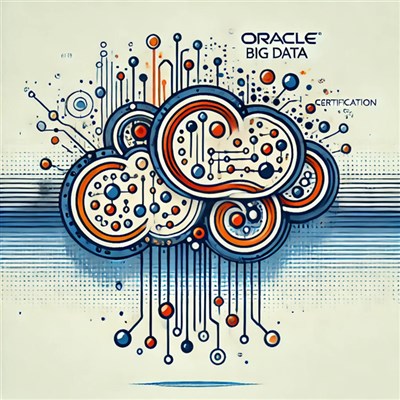
In today's dynamic business environment, the role of accounts payable (AP) is critical for maintaining financial health and ensuring operational efficiency. As companies increasingly rely on effective financial management practices, the demand for skilled professionals in accounts payable continues to grow. An accounts payable course is designed to equip learners with the essential skills necessary to excel in this vital area of finance. In this blog, we will explore the key skills acquired in an accounts payable course, including invoice processing, payment management, compliance, vendor management, and more.
Skills Acquired in an Accounts Payable Course
1. Understanding Invoice Processing
Invoice processing is one of the most fundamental skills taught in an accounts payable course. This process involves the receipt, verification, and approval of invoices before payment is made. Key components of invoice processing include:
- Invoice Receipt and Verification: Learning how to receive invoices and verify their accuracy against purchase orders or contracts. This ensures that the goods or services billed were indeed delivered and meet the agreed-upon terms.
- Data Entry: Gaining proficiency in entering invoice details into accounting systems. This skill is crucial for maintaining accurate financial records and facilitating efficient payment processing.
- Approval Workflow: Understanding the approval process for invoices, which often involves multiple stakeholders within an organization. Participants learn how to navigate this workflow and ensure timely approvals.
- Handling Discrepancies: Developing the ability to identify and resolve discrepancies between invoices and purchase orders. This includes communicating with vendors and internal teams to clarify issues and ensure accuracy.
2. Payment Management
Effective payment management is another essential skill that learners acquire in an accounts payable course. This skill set encompasses several important aspects, including:
- Payment Processing: Understanding the various payment methods used in accounts payable, such as checks, electronic funds transfers (EFT), and credit card payments. Participants learn the advantages and disadvantages of each method and when to use them.
- Payment Scheduling: Learning how to manage payment schedules to optimize cash flow. This involves prioritizing payments based on due dates, cash availability, and vendor relationships.
- Early Payment Discounts: Exploring strategies for taking advantage of early payment discounts offered by vendors. Participants learn how to assess the financial impact of early payments versus holding onto cash longer.
- Expense Management: Developing skills in tracking and managing expenses related to accounts payable. This includes analyzing spending patterns and identifying areas for potential cost savings.
3. Compliance and Regulatory Knowledge
Compliance is a crucial aspect of accounts payable, as organizations must adhere to various legal and regulatory requirements. An accounts payable course covers the following compliance-related topics:
- Understanding Regulations: Participants learn about relevant regulations that govern accounts payable, such as tax laws, industry standards, and international regulations for global transactions.
- Maintaining Accurate Records: Gaining skills in maintaining accurate and up-to-date financial records to support compliance efforts. This includes understanding the importance of documentation for audit purposes.
- Internal Controls: Learning how to implement and monitor internal controls within the accounts payable process to prevent fraud and ensure compliance. This includes separation of duties and regular audits of financial records.
- Reporting Requirements: Understanding the reporting obligations related to accounts payable, such as tax reporting for payments to vendors. Participants learn how to prepare necessary reports and filings in compliance with regulations.
4. Vendor Management Skills
Vendor management is an integral part of the accounts payable function, and an accounts payable course equips participants with skills to build and maintain positive relationships with vendors. Key components of vendor management include:
- Vendor Selection and Evaluation: Learning how to assess and select vendors based on criteria such as pricing, quality, reliability, and service levels.
- Negotiation Skills: Developing negotiation skills to secure favorable terms and conditions with vendors, including payment terms, pricing discounts, and service level agreements.
- Maintaining Vendor Records: Understanding the importance of keeping accurate and organized vendor records, including contact information, contracts, and performance evaluations.
- Dispute Resolution: Gaining skills in effectively addressing disputes with vendors regarding invoices, payments, or service issues. This includes communication strategies and conflict resolution techniques.
5. Cash Flow Management
Effective accounts payable management plays a critical role in cash flow management. Participants in an accounts payable course learn how to:
- Analyze Cash Flow Statements: Understand the components of cash flow statements and how accounts payable affects cash flow management.
- Forecast Cash Flow: Develop the ability to forecast cash flow based on accounts payable data, enabling informed decision-making regarding spending and investment.
- Balance Short-Term and Long-Term Goals: Learn how to balance short-term cash flow needs with long-term financial goals, ensuring the organization's financial health.
6. Financial Reporting
Accounts payable professionals play a crucial role in financial reporting, and an accounts payable course provides training on:
- Preparation of Financial Statements: Understanding how accounts payable impacts financial statements, including balance sheets and income statements.
- Analyzing Financial Data: Developing skills in analyzing financial data related to accounts payable, including aging reports and payment trends.
- Key Performance Indicators (KPIs): Learning how to measure and report on KPIs related to accounts payable, such as Days Payable Outstanding (DPO) and payment processing time.
7. Technology and Software Proficiency
In today's digital age, technology plays a significant role in accounts payable management. An accounts payable course often includes training on:
- Accounting Software: Familiarization with popular accounting and ERP (Enterprise Resource Planning) software used in accounts payable, such as QuickBooks, SAP, and Oracle.
- Automation Tools: Understanding the benefits of automation in accounts payable processes, including invoice scanning, electronic approvals, and payment processing.
- Data Security: Learning best practices for safeguarding sensitive financial data within accounts payable systems to prevent unauthorized access and fraud.
Conclusion
In summary, an accounts payable course equips learners with a comprehensive skill set that is vital for success in financial management roles. From mastering invoice processing and payment management to understanding compliance regulations and vendor management, participants gain the knowledge and tools necessary to excel in accounts payable.
As businesses continue to prioritize efficient financial practices, the demand for skilled accounts payable professionals is likely to grow. By investing in an accounts payable course, individuals can enhance their career prospects, contribute to their organizations' financial health, and stay competitive in the ever-evolving landscape of finance. Whether you're starting your career in finance or looking to advance your current position, acquiring these essential skills can pave the way for success in the field of accounts payable.
Koenig Solutions is a leading IT training company providing certifications in top technology courses. Our accounts payable course is designed to help you build a successful career in the finance sector. With our expert instructors, interactive learning environment, and comprehensive curriculum, we can help you unlock your potential.







COMMENT